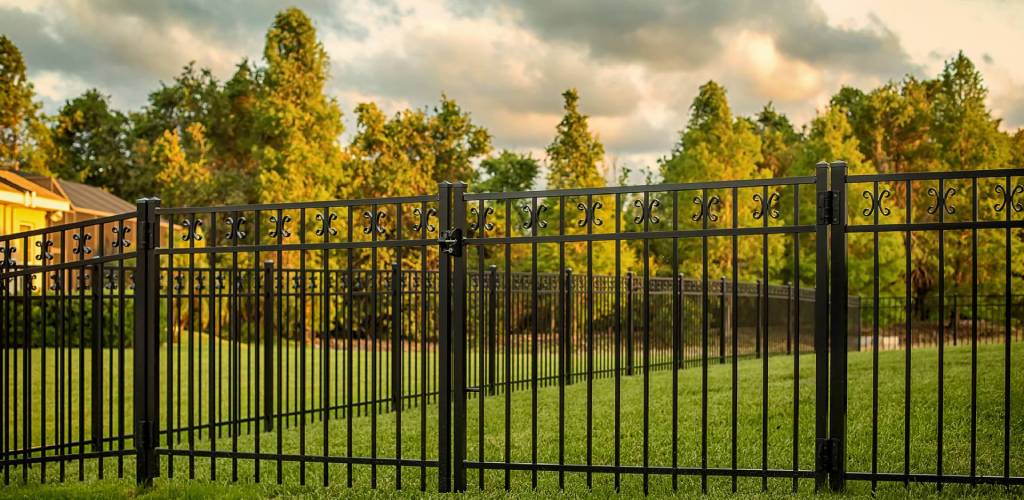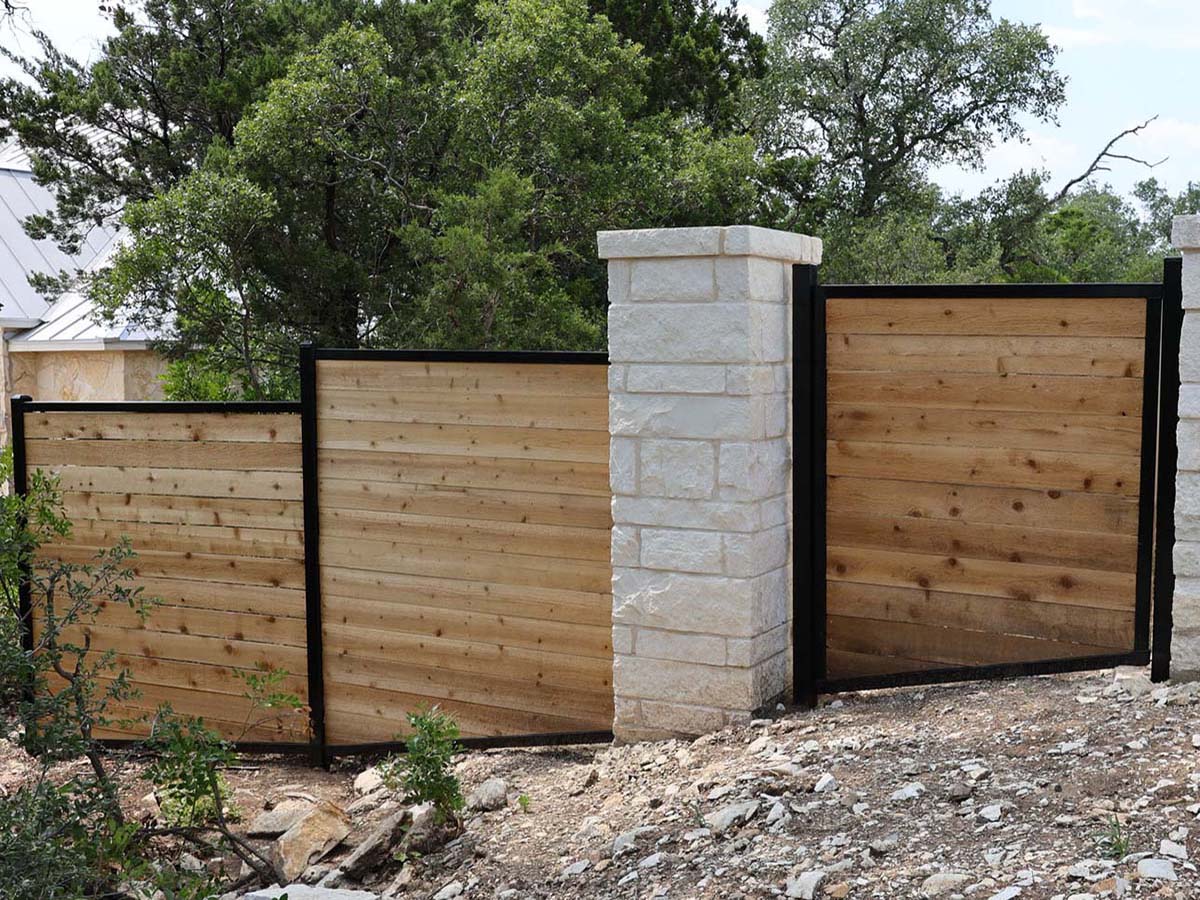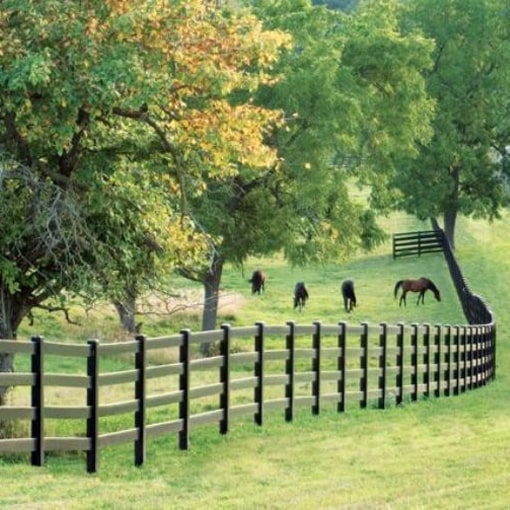All Categories
Featured

When setting up a fence, selecting the appropriate material is vital to stabilizing performance, appearances, and budget plan. Wood, plastic, and aluminum are amongst one of the most typically picked fencing products, each with its toughness and drawbacks. This guide checks out the pros and disadvantages of these choices to aid you make an informed decision.

Timber Fencing. Pros:. Natural Beauty: Timber's classic appeal can enhance any home with its cozy and classic look. Personalized: You can paint, tarnish, or sculpt timber to fit your style choices. Inexpensive: Wood fencing is initially a lot more affordable contrasted to a few other products. Eco-friendly: As a renewable resource, wood is biodegradable and often considered green. Disadvantages:. Maintenance-Intensive: Normal securing, paint, or discoloration is required to stop damages from weather condition and bugs. Prone to Degeneration: Without correct treatment, timber can rot, warp, or split in time. Much shorter Life-span: Usually, timber fences last 10-15 years, depending upon the kind of wood and upkeep. Wood is a wonderful choice for those who value looks and agree to buy regular maintenance to maintain its look and sturdiness.
Vinyl Fencing. Pros:. Reduced Upkeep: Vinyl requires minimal treatment-- just occasional cleaning with soap and water. Weather Resistant: It does not warp, rot, or catch insect damage, making it very sturdy in numerous climates. Durability: Plastic fences can last 20-30 years with little to no fixings. Style Selection: Available in a wide variety of designs, appearances, and colors, including wood-like appearances. Cons:. Greater Initial Price: Plastic fences are much more expensive ahead of time compared to timber. Vulnerability to Cold: In exceptionally cold weather condition, plastic can end up being brittle and prone to cracking. Limited Repair Service Options: Matching replacement panels can be challenging if damage occurs. Vinyl fence is optimal for homeowners seeking a durable, low-maintenance solution that offers modern versatility.

Aluminum Fence. Pros:. Rust-Proof: Light weight aluminum resists deterioration, making it an outstanding selection for wet or moist atmospheres. Resilient: Regardless of being lightweight, light weight aluminum is solid and can endure rough weather. Reduced Upkeep: It calls for minimal maintenance, commonly only occasional cleaning. Long Life expectancy: Aluminum fencings can last decades without considerable wear and tear. Elegant Design: Often used for ornamental purposes, light weight aluminum fence includes a sleek, advanced look to residential properties. Disadvantages:. High Preliminary Investment: Aluminum fencings are among the pricier options on the marketplace. Much less Personal privacy: The open styles usual with aluminum secure fencing do not supply much privacy. Susceptible to Damage: While sturdy, light weight aluminum can dent if hit with enough pressure. Aluminum is an excellent selection for house owners focusing on looks and longevity without needing much maintenance.
Making Your Decision. When determining in between vinyl, light weight aluminum, or wood fencing, consider your priorities:
Wood matches those who appreciate an all-natural appearance and don't mind putting in maintenance effort. Vinyl is the most effective option for those looking for a low-maintenance, weather-resistant service. Light weight aluminum offers smooth style and lasting longevity yet might do not have personal privacy. By thoroughly evaluating these products' functions, you can choose a fencing that matches your building while meeting your functional and aesthetic needs.
Latest Posts
The Benefits of Consistent Auto Maintenance at Montclare Auto Repair Keeps Your Wallet Happy
Published en
1 min read
Unlock WyHy Federal Credit Union – Top Benefits for Your Future
Published en
1 min read
Check Out Budget-Friendly Auto Repairs with Montclare’s Exclusive Service Specials
Published en
1 min read
More
Latest Posts
The Benefits of Consistent Auto Maintenance at Montclare Auto Repair Keeps Your Wallet Happy
Published May 26, 25
1 min read
Unlock WyHy Federal Credit Union – Top Benefits for Your Future
Published May 25, 25
1 min read
Check Out Budget-Friendly Auto Repairs with Montclare’s Exclusive Service Specials
Published May 24, 25
1 min read